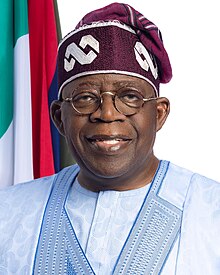The Presidency has responded to the New York Times’ recent article by Ruth Maclean and Ismail Auwal in the New York Times, titled, “Nigeria confronts its worst economic crisis in a generation,” saying it as not only jaundiced and misleading but failed to provide a balanced view of the country’s economic situation.
Special Adviser to President Tinubu on Information and Strategy, Bayo Onanuga, in a statement, highlighted the positive aspects of the economy and the ameliorative policies being implemented by the central and state governments.
According to him, President Bola Tinubu did not create the economic problems Nigeria faces today, but rather inherited them. He added that the country had maintained a fuel subsidy regime that gulped $84.39 billion between 2005 and 2022, leaving little room for other essential expenditures.
He explained that NNPC had amassed trillions of naira in debts for absorbing the unsustainable subsidy payments in its books. By the time President Tinubu took over, there was no provision made for fuel subsidy payments in the national budget beyond June 2023. The budget itself had a striking feature: it planned to spend 97 percent of revenue servicing debt, with little left for recurrent or capital expenditure.
To address these issues, the Presidential aide further explained that President Tinubu’s administration rolled back the fuel subsidy regime and unified the multiple exchange rates. This move, he said, was necessary to restore stability to the economy and ensure that the country could fulfill its remittance obligations to airlines and other foreign businesses. The government also floated the naira, which has since stabilized and is expected to appreciate further by the end of the year.
The reforms, Onanuga said, have already shown positive results. The economy recorded a trade surplus of N6.52 trillion in Q1, as against a deficit of N1.4 trillion in Q4 of 2023. Portfolio investors have streamed in, and long-term investors are showing interest in the country. The World Bank has extended a $2.25 billion loan, and other loans from the AfDB and Afreximbank are coming in, indicating that Nigeria has become bankable again.
He said the government is also working to address food inflation, which remains the biggest challenge. Increased agricultural production is being encouraged, and state governments are setting up retail shops to sell raw food items at lower prices.
He said the Tinubu administration has invested heavily in dry-season farming, and the CBN has donated N100 billion worth of fertiliser to farmers.
Onanuga said Nigeria is not alone in facing economic difficulties. The USA and Europe are also grappling with rising cost of living crises. He said the Tinubu administration is working hard to address these challenges, and the country is expected to overcome its difficulties soon.
“Our country faced economic difficulties in the past, an experience that has been captured in folk songs. Just like we overcame then, we shall overcome our present difficulties very soon.”
Do you have a story to share? Want to advertise with us? Or perhaps you need publicity for a product, service, or event?
Contact us:WhatsApp: +2348165713606 Email: nationalreports001@gmail.com
We'd love to hear from you!"





